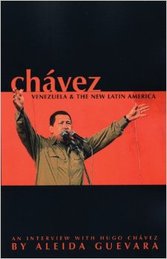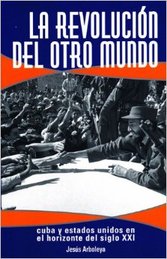As a result of the influence of popular democratic movements throughout the world, the meaning of democracy has evolved. Accordingly, there has emerged the understanding that not only individuals have rights, but nations and ethnic and cultural groups have rights, and among these are the rights of nations to self-determination and sovereignty and of ethnic and cultural groups to cultural autonomy and to the preservation of their cultures.
V.I. Lenin affirmed the right of the self-determination of the oppressed nations of the Russian empire as well as of the European colonies of Asia and Africa. He understood that colonial domination of the nations and peoples of Asia and Africa provided markets and raw materials for the capitalist powers, and that revolutionary anti-imperialist movements emerge in the colonies, formed by workers, peasants, and enlightened members of the middle class. He believed that the proletarian revolution in the developed countries ought to be allied with the anti-imperialist revolutions in the colonies (Lenin 2010; 1968).
When the young Ho Chi Minh became involved in the socialist movement in Paris in the early 1920s, he encountered the debate between the second and third internationals, and he wanted to know which side supported the struggle of the colonized people. He was told that it was the Third International, and he was given a copy of Lenin’s “Theses on the National and Colonial Question.” The affirmation by Lenin of the rights of the colonized people converted Ho into a Leninist, and it would lead to his affiliation with the French Communist Party, to a study of Marxism-Leninism, and ultimately to his creative practical synthesis of Marxism-Leninism with a Third World anti-colonial perspective. Ho’s “Report on the National and Colonial Questions” at the Fifth Congress of the Communist International as well as other writings of 1924 reveal that Ho was critical of the communist parties of the West for lacking contact with the colonial peoples and for ignoring the colonial question, thus not following in practice the theoretical formulations of Lenin on the national question (García Oliveras 2010:25-27; Bello 2007:xii-xiv; Ho 2007:24-38).
Ho Chi Minh illustrates the importance of the principle of the self-determination of nations in the anti-colonial movements that emerged in Africa and Asia during the twentieth century and that culminated in the attainment of political independence by the colonies in the period 1948 to 1963. Reflecting the new political reality established by the African and Asian national liberation movements, the United Nations in 1966 gave official certification to the right of nations and peoples to self-determination and development. The International Covenant on Economic, Social and Cultural Rights, proclaimed: “All peoples have the right of self-determination. By virtue of that right they freely determine their political status and freely pursue their economic, social and cultural development. All peoples may, for their own ends, freely dispose of their natural wealth and resources without prejudice to any obligations arising out of international economic co-operation.”
The right of nations to self-determination is repeatedly affirmed today in the declarations of the Non-Aligned Movement, an organization of governments of the Third World who represent three-quarters of humanity, and in the declarations of the Alternative World Movement, a global social movement that emerged in the late 1990s in opposition to the imposition of the neoliberal project by the global powers and the international finance agencies. In addition, respect for the sovereignty of all nations is an integral component of the process of integration and union that is occurring in Latin America today under the leadership of Venezuela, Bolivia, and Ecuador. We will be discussing these movements in future posts.
During the course of the twentieth century, US foreign policy has sought to maximize access by US corporations to the natural resources and labor of the world, generally manipulating the idea of democracy as a pretext for its intervention in the affairs of other nations, with the consequence that the sovereignty of nations has been denied in practice. The United States pretends to be defending democracy in the world, but in fact it systematically negates the democratic right of self-determination of nations, a right affirmed by the peoples of the world. In opposition to this historic tendency, Jesse Jackson in his presidential campaign of 1988 proposed a US foreign policy of global North-South cooperation that would respect the right of self-determination and that would seek to overcome poverty and underdevelopment in the Third World (McKelvey 1994:284-90).
References
Bello, Walden. 2007. “Introduction: Ho Chi Minh: The Communist as Nationalist” in Ho Chi Minh (2007).
García Oliveras, Julio A. 2010. Ho Chi Minh El Patriota: 60 años de lucha revolucionaria. La Habana: Editorial de Ciencias Sociales.
Ho Chi Minh. 2007. Down with Colonialism. Introduction by Walden Bello. London: Verso.
Lenin, V.I. 1968. National Liberation, Socialism, and Imperialism: Selected Writings. New York: International Publishers.
__________. 2010. “Tesis sobre la cuestion nacional y colonial” in La Internacional Comunista: Tesis, manifiestos, y resoluciones de los cuatro primeros congresos (1919-1922). Madrid: Fundación Federico Engels.
McKelvey, Charles. 1994. The African-American Movement: From Pan-Africanism to the Rainbow Coalition. Bayside, New York: General Hall.
Key words: Third World, revolution, colonialism, neocolonialism, imperialism, democracy, national liberation, sovereignty, self-determination, socialism, Marxism, Leninism, Cuba, Latin America, world-system, world-economy, development, underdevelopment, colonial, neocolonial, blog Third World perspective, Ho Chi Minh






 RSS Feed
RSS Feed





